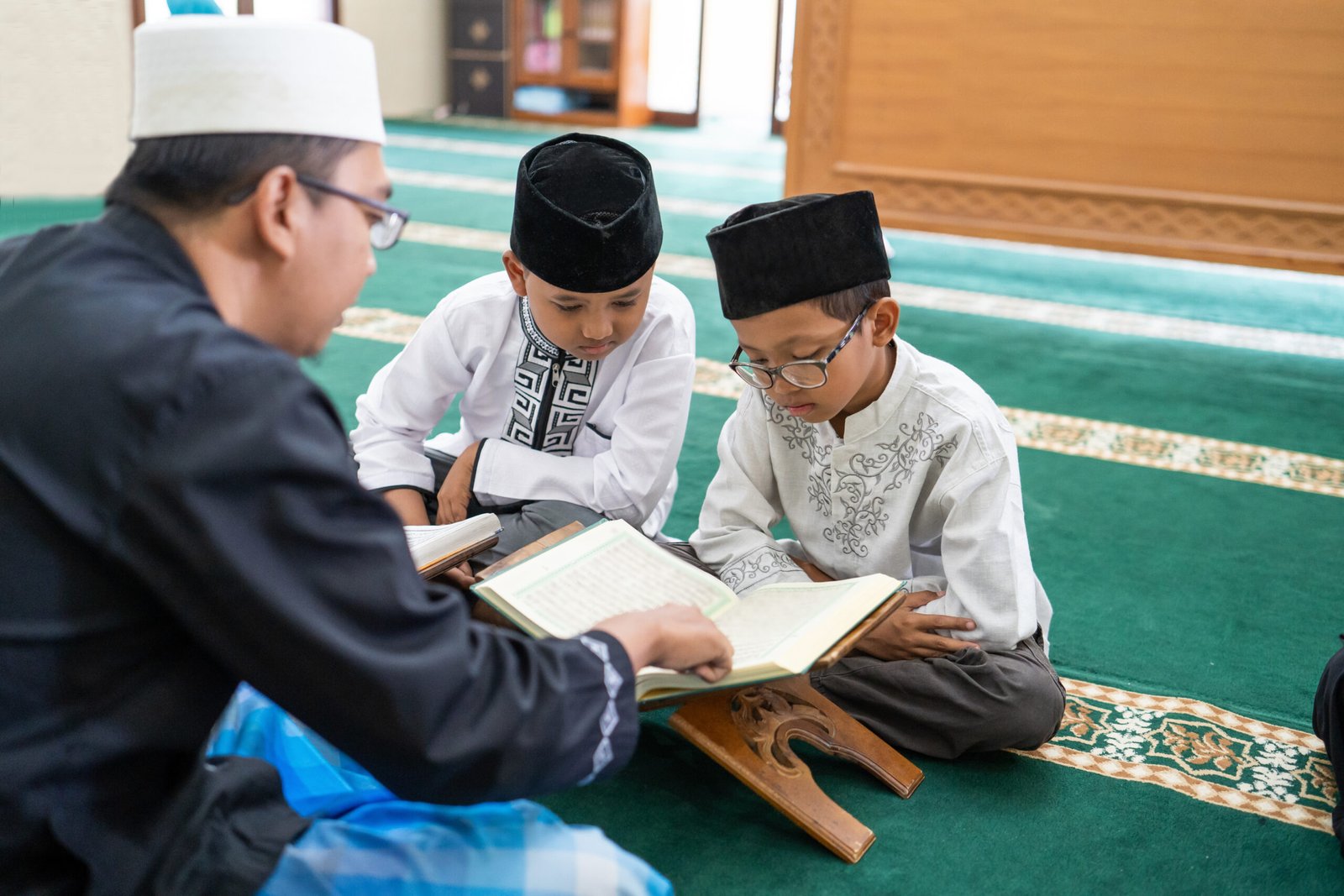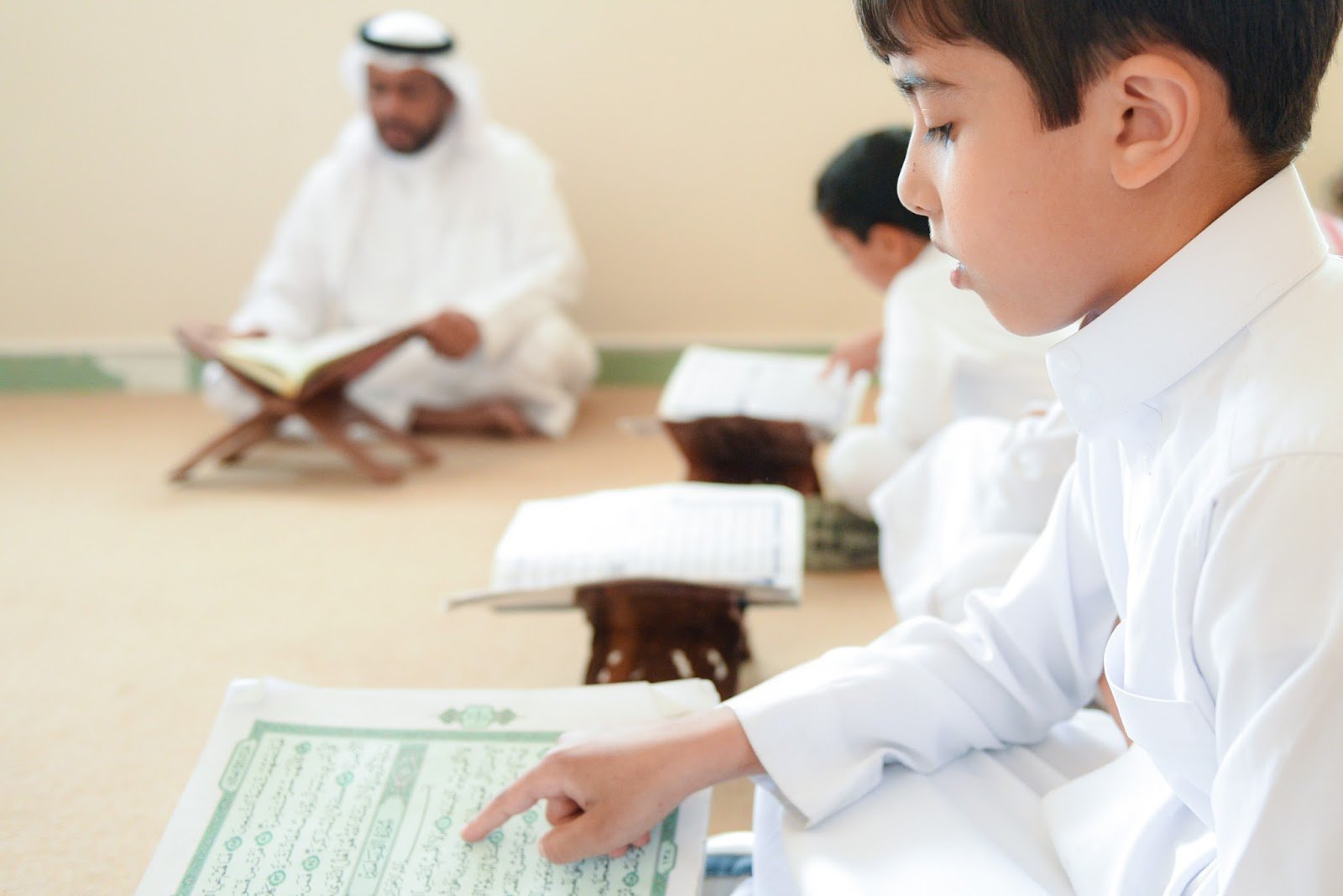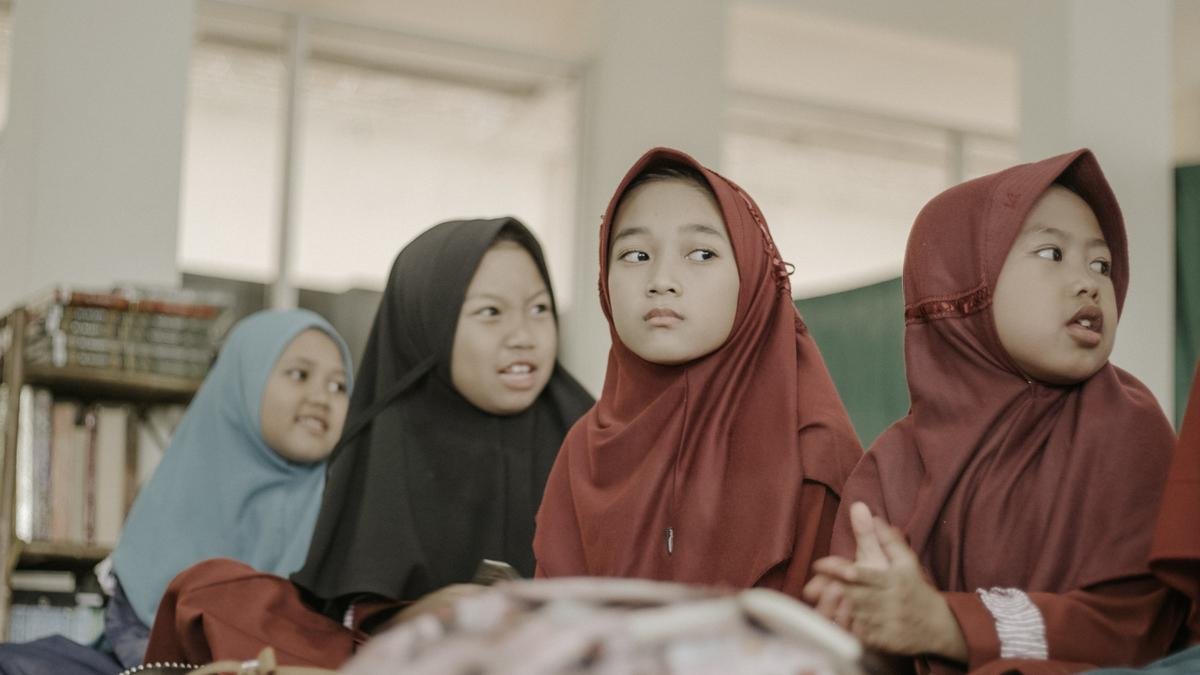Basic Islamic knowledge for toddlers plays a crucial role in shaping their early understanding of religion, By introducing the foundational elements of Islam simply and engagingly, young children can grasp the pillars of Islam and its moral values, This article explores the importance of beginning to teach toddlers basic Islamic concepts and how to present them in ways that suit their comprehension and developmental stage, helping them build a strong connection with their faith from an early age.
Basic islamic knowledge for toddlers

Basic Islamic knowledge for toddlers is essential for shaping their early understanding of faith, Introducing young children to the core teachings of Islam in a simple and engaging way allows them to grasp the five pillars of Islam and its ethical values, This foundation helps toddlers form a strong bond with their religion and develop a well-rounded Muslim character from a young age.
Providing basic Islamic knowledge for toddlers involves teaching them about prayer, charity, fasting, pilgrimage, and the declaration of faith. These concepts can be conveyed through enjoyable educational activities like stories, games, arts, and crafts, making the learning process effective and entertaining.
For instance, parents can use Quranic stories to introduce toddlers to the prophets and teach them moral lessons from their lives, By narrating simple and captivating tales, children can learn about virtues such as honesty, integrity, justice, and compassion. Practical activities like role-playing and skits can also be excellent tools for teaching toddlers how to perform prayers or understand the significance of fasting during Ramadan. Presenting information in a way that matches their comprehension level makes the learning experience more impactful and effective.
Additionally, parents and educators can use religious songs and chants to teach toddlers daily supplications and praises, This method not only entertains children but also aids in memory retention, Visual aids like illustrated books and colorful diagrams can help present Islamic concepts appealingly and straightforwardly, These educational tools simplify complex ideas, making them more accessible and understandable for young minds.
It is crucial to integrate Islamic education into the daily routine at home, Parents can dedicate a specific time each day to reading religious stories, learning new supplications, or even watching educational Islamic programs designed for children, This daily practice reinforces Islamic values in toddlers’ lives, making them an integral part of their daily activities.
The responsibility of imparting basic Islamic knowledge for toddlers extends beyond parents to schools and Islamic centers, which play a significant role in providing this education in innovative and appealing ways, By collaborating with educational institutions, parents can ensure that their children receive a comprehensive and well-rounded Islamic education, laying a solid foundation of faith that they can rely on throughout their lives.
An issue that could fascinate you: How does praying affect the daily lives of Muslims?
Basic islamic words for beginners

Introducing basic Islamic knowledge for toddlers is a crucial step in nurturing their understanding of the faith from a young age. By engaging little ones with the essential teachings of Islam in a clear and enjoyable manner, they can begin to grasp the five pillars of Islam and develop a sense of moral and ethical values. This early foundation helps toddlers form a strong connection with their religion, fostering a well-rounded Muslim identity as they grow.
Providing basic Islamic knowledge for toddlers involves teaching them about important practices such as daily prayers, the value of charity, the purpose of fasting, the significance of pilgrimage, and the declaration of faith. These lessons can be woven into their lives through fun and interactive activities like storytelling, role-playing, and arts and crafts. For example, parents can share tales about the prophets to convey lessons of honesty, kindness, and compassion. By relating these stories to everyday situations, toddlers can better understand and internalize these values.
Using visual aids such as illustrated books and colorful charts can also make learning more engaging for young children. These tools help simplify complex ideas, making them easier for toddlers to grasp and remember. Additionally, incorporating religious songs and chants into daily routines can teach children supplications and praises, turning learning into a fun and memorable experience.
It is important to make Islamic education a part of the daily routine at home. Parents can set aside specific times each day for reading religious stories, learning new supplications, or watching educational Islamic programs designed for children. This consistent practice reinforces Islamic values and makes them an integral part of the child’s daily activities.
In partnership with schools and Islamic centers, parents can ensure their children receive a thorough and balanced Islamic education. These institutions can provide creative and engaging methods to teach young children, ensuring they develop a solid foundation of faith that will support them throughout their lives.
Basic islamic teachings

Understanding Basic Islamic knowledge for toddlers is essential for anyone beginning their journey in Islam, These fundamental principles lay the groundwork for a comprehensive understanding of the faith, The core teachings revolve around the five pillars of Islam, which include the declaration of faith, prayer, fasting, charity, and pilgrimage, Each of these pillars holds significant importance and helps in shaping a Muslim’s daily life and spiritual connection.
In addition to the pillars, Basic Islamic knowledge for toddlers emphasizes moral values such as honesty, compassion, and justice, These principles guide individuals in their interactions with others and in their personal conduct. For instance, honesty is highly valued, encouraging Muslims to speak the truth and act with integrity in all situations. Compassion is another key value, fostering a sense of empathy and kindness towards others, whether they are fellow Muslims or not.
In Surah An-Nahl, a profound call to absolute justice is made, where Allah commands the establishment of justice:
“إِنَّ اللَّهَ يَأْمُرُ بِالْعَدْلِ وَالْإِحْسَانِ وَإِيتَاءِ ذِي الْقُرْبَى وَيَنْهَى عَنِ الْفَحْشَاءِ وَالْمُنْكَرِ وَالْبَغْيِ يَعِظُكُمْ لَعَلَّكُمْ تَذَكَّرُونَ” [النحل: 90].
From this Quranic outset, justice in its comprehensive sense is embodied, prompting the believing Muslim with this commanding call to establish it throughout life and promote it among people, This is affirmed through other Quranic contexts referenced in subsequent verses.
What knowledge should a 3-year-old have?
Grasping what Basic Islamic knowledge for toddlers should encompass is crucial for their early development, At the age of 3, children can begin to understand foundational concepts that shape their understanding of Islam.
Basic Islamic knowledge for toddlers includes simple teachings about Allah, the importance of kindness, prayer, and the Prophet Muhammad (PBUH). Introducing these concepts through stories, interactive activities, and gentle guidance helps children connect with their faith meaningfully, For example, teaching them about Allah’s love and mercy can be done through bedtime stories or gentle reminders during daily routines.
Learning about prayer can involve playful imitation and explaining its significance in a language they understand. Basic Islamic knowledge for toddlers also entails instilling values like sharing, honesty, and respect for elders, which can be reinforced through everyday interactions and positive reinforcement. By nurturing these teachings from an early age, parents and caregivers lay a solid foundation for a child’s spiritual and moral development, ensuring that Basic Islamic knowledge for toddlers becomes an integral part of their upbringing and identity.
The impact of islamic knowledge on toddlers
Basic Islamic knowledge’s impact on toddlers profoundly shapes their early development and spiritual growth, Introducing Basic Islamic knowledge for toddlers at a young age lays a crucial foundation for their understanding of Islam’s core principles and values, At this tender age, children begin to absorb simple teachings about Allah, kindness, prayer, and the Prophet Muhammad (PBUH).
These teachings are often conveyed through engaging stories, interactive activities, and gentle guidance, allowing toddlers to connect with their faith in a meaningful way. For instance, teaching them about Allah’s love and mercy can be integrated into bedtime routines or daily activities, reinforcing these concepts through repetition and positive reinforcement.
Islamic knowledge also instills moral values such as honesty, compassion, and respect for others. Through practical examples and age-appropriate explanations, toddlers learn to internalize these values, guiding their behavior and interactions with others, Understanding Basic Islamic knowledge at a young age helps toddlers develop a strong sense of identity and belonging within their faith community, It nurtures their spiritual growth and fosters a deep connection with Islamic teachings, which they can carry forward into adolescence and adulthood, By investing in their early Islamic education, parents and caregivers contribute to the holistic development of toddlers, preparing them to navigate life’s challenges with a strong moral compass rooted in Basic Islamic knowledge.
Top 6 islamic knowledge resources for toddlers
There are many resources that children can rely on to learn about Islam, including the following.
Books: Islamic books designed for toddlers are invaluable resources for introducing Basic Islamic knowledge, These books often use simple language and colorful illustrations to teach about Allah, kindness, prayer, and the Prophet Muhammad (PBUH).
Interactive Apps: Educational apps offer engaging activities that help toddlers learn Islamic concepts through games, stories, and quizzes, reinforcing comprehension in a fun way.
Videos and Cartoons: Islamic educational videos and cartoons catered to toddlers provide visual learning experiences about Islamic teachings, making concepts like compassion and honesty relatable.
Islamic Toys and Games: Toys and games designed with Islamic themes can help toddlers learn about Islamic values and practices through play, encouraging active learning and exploration.
Parental Guidance: Parents play a crucial role in teaching Basic Islamic knowledge to toddlers through daily interactions, discussions, and modeling Islamic values in their behavior and actions.
Islamic Learning Centers: Islamic centers and preschools offer structured programs that provide toddlers with opportunities to learn about Islam in a supportive and immersive environment, complementing home-based learning efforts.
FAQS
How to teach toddlers about Islam?
Teaching toddlers about Islam involves using simple language, engaging stories, and interactive activities that help them understand basic Islamic concepts.
What is the basic knowledge of Islam for kids?
The basic knowledge of Islam for kids includes learning about Allah, kindness, prayer, and the life of Prophet Muhammad (PBUH).
What are the Islamic activities for 2-year-olds?
Islamic activities for 2-year-olds can include listening to Quranic stories, learning simple supplications (du’as), and engaging in playful activities that teach about Islamic values.
Where Can Toddlers Find Islamic Knowledge?
Toddlers can find Islamic knowledge through books, educational apps, Islamic centers, and their parents who teach them about Islam at home.
Why Is Islamic Knowledge Important for Toddlers?
Basic Islamic knowledge for toddlers is important because it helps them develop a strong foundation in their faith, understand moral values, and build a connection with Islamic teachings from a young age.
Who Can Help Toddlers Develop Islamic Knowledge?
Parents, caregivers, Islamic educators, and Islamic learning centers can all help toddlers develop Islamic knowledge through guidance, storytelling, and age-appropriate educational materials.
What Are the Benefits of Teaching Islamic Knowledge to Toddlers?
Teaching Basic Islamic knowledge for toddlers benefits them by fostering spiritual growth, instilling moral values, and nurturing a sense of identity within the Islamic community.
READ ABOUT:
Interesting Islamic topics to discuss
How can parents effectively introduce Basic Islamic knowledge for toddlers at home?
Parents can introduce Basic Islamic knowledge for toddlers by incorporating simple daily practices, such as reciting short duas before meals and bedtime, teaching basic Islamic phrases like “Alhamdulillah” and “Insha’Allah,” and using children’s books or educational videos that are designed specifically for young children. Creating a positive and loving environment where Islamic values are practiced regularly will help toddlers naturally absorb these teachings.
What activities can help reinforce Basic Islamic knowledge for toddlers?
Activities like storytelling from Islamic children’s books, engaging in simple crafts that relate to Islamic themes (e.g., making prayer mats), singing nasheeds, and using Islamic coloring books can help reinforce Basic Islamic knowledge for toddlers. Additionally, involving them in daily rituals such as prayer time and allowing them to mimic the actions can make learning fun and interactive.
Why is it important to start teaching Basic Islamic knowledge for toddlers at an early age?
Starting to teach Basic Islamic knowledge for toddlers at an early age helps instill core values and beliefs while their minds are still impressionable and eager to learn. Early exposure lays the foundation for a strong Islamic identity, encourages moral development, and fosters a sense of belonging within the Muslim community. It also helps children develop good habits, like praying and showing gratitude, from a young age.
- Is Islam the True Path? A Comprehensive Exploration
- Islamic Activities For Youth
- How To Teach Islam To Child | Introduce Islam To Kids
- online islamic institute
Conclusion about Basic Islamic knowledge For Toddlers
Teaching Basic Islamic knowledge for toddlers is essential for their holistic development, nurturing their spiritual growth and moral foundation from an early age, By utilizing engaging methods and supportive environments, such as books, apps, and parental guidance, toddlers can build a strong connection with Islamic teachings. Additionally, Sheikh Saleh Academy offers courses tailored to Islamic children’s education, further enhancing their understanding and practice of Islamic principles.